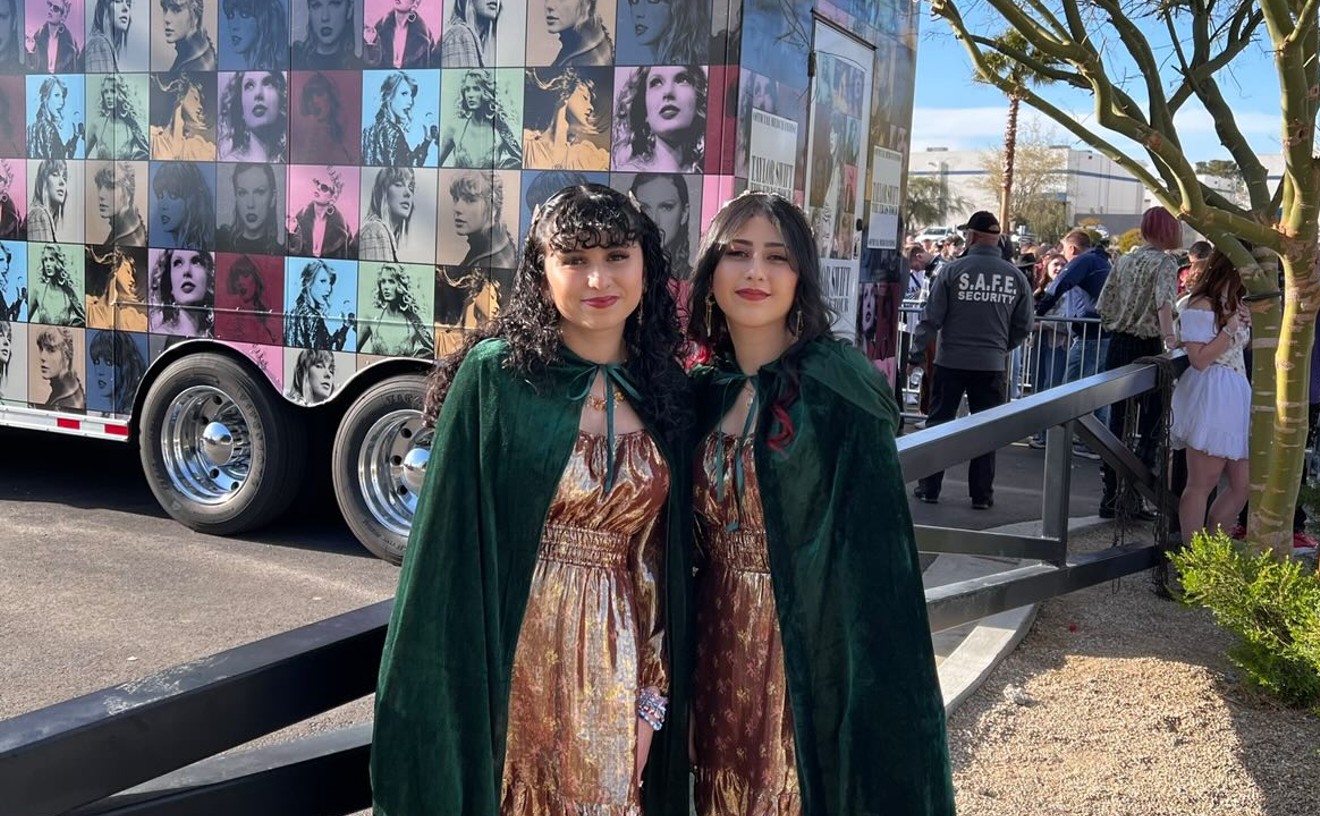At Don McCalister Jr.'s Austin-based Biscuit Boy Records, however, the phone is picked up on the first ring and answered by a surprisingly alert voice. "We get up pretty early," the voice allows. "Lots of work to do." Even more surprising is the fact that the voice belongs to McCalister himself.
Of course, Biscuit Boy is his label, formed primarily to aid the guitarist and singer-songwriter in marketing and distributing his latest album, the subtle and sophisticated Love Gone Right, so his presence makes a certain sense even if it does fly in the face of the conventional image of the late-sleeping musician.
Of course, McCalister does a lot of flying thataway, refusing to allow his music to accept any of the stylistic boundaries often issued as standard equipment in modern country music and allowing his tunes--although rooted in an obvious love of tradition--to acquire new flavors from jazz, gospel, conjunto, New Orleans, and whatever else catches his free-range fancy. He also stands out in a town fiercely aware of its reputation as a home for "outlaw" music, particularly country. Where most go out of their way to dis' the businesslike formula and sterility of Nashville, McCalister--whose short hair and round glasses conspire to make him appear vaguely academic--freely admits to loving the place and makes regular pilgrimages.
"People think that if you go to Nashville, you sell out," he says, "but my experience is that I go there, and I can have lunch with Harlan Howard or any other number of people that are significant in country music's history; I just go there to learn how to write songs. I love it," he adds unabashedly.
"I don't wear a hat or any of that shit," he points out, playing down the dreaded Nashville Effect. "And sure, the more subtle stuff gets overlooked, but look: Walter [Hyatt] moved out there, and so did David [Ball, both of essential Austin acoustic-folk group Uncle Walt's Band], because they wanted to learn something and they wanted to take their careers further."
In Austin terms, McCalister's road trips are usually disorientingly productive. Just how the hell does he do that? "I just get in the van and drive to Nashville," he explains. "I get with some old buddies and we write like nuts for three or four days."
Of course, the nuttiness is controlled: McCalister makes regular appointments to work with other songwriters, almost like a salesman. "It's a coffee thing; the beer usually starts around 3 (p.m.), but not before," he says. "I made that mistake, once. I had two appointments that went fine, and my third one, the guy said, 'How about a beer?' and I said, 'Sure,' and when he reached to get us a couple, he put his pad of paper away. No work."
Besides building a work ethic, Nashville's toughened McCalister. Windows of opportunity are cut pretty small in Music City, U.S.A., and you get one shot at impressing the bigwigs. "You're scared to death, because you've only got one song--four minutes. If you're not good, you're out." His Nashville associations also help him maintain an identity a bit distanced from what can be the velvet rut of the Austin music scene. "My two biggest early influences were Muddy Waters and Duane Allman," he recalls. "Even when I moved here, the people who affected me the most weren't part of that typical Austin thing...It was people like Maryann Price and Johnny Gimble, people who are a little bit separate themselves, who taught me."
It hasn't been as easy as going to class, however. Born in Huntsville, Alabama, McCalister was a musically talented kid who moved frequently as his family followed the positions his college-professor father took; in 1982 he moved to Austin to attend University of Texas and got into a bluegrass band in his spare time. Gradually, the music took an evermore important role; he still has six hours to go on his anthropology degree.
His early influences led him toward jazzier music. "Muddy, Duane--the blues are where jazz came from," he says. "If you follow the chord progressions used in blues, they very naturally move you toward jazz." His interest piqued, he turned to some of his more-advanced musical pals, asking them for help in "deprogramming" his bluegrass technique. They sat with him a good part of a day teaching him jazz parts on the guitar; whenever he'd revert to bluegrass patterns, one of his teachers would smack his hand with a beer can. It took a while, but it took, and McCalister was ready to begin exploring.
The fruits of his self-education are all over Love Gone Right: a certain polish that reflects jazz and swing influences creeping in about the margins of the textures provided by Dixieland reeds ("The Stars Spell Dixie") and norteno accordions ("Mexican Wind") shading individual songs. This eclectic finesse--plus a vague vocal resemblance--most often gets him compared to Lyle Lovett. But while Lovett keeps his eyes fixed uptown, where the tuxedos and weird haircuts grow, McCalister keeps a firmer connection to Texas country. He loves the standards--the cowboy songs, swing numbers, and two-steppers--and can pull off the twang of the title song or the romantic outlaw ballad, "Red Rose of Morning," without a hint of irony or condescension.
That didn't keep him from assembling the 14-piece Cowboy Jazz Revue, however, full of top-flight talent like Gimble and Floyd Domino and almost guaranteeing the frequent Lovett comparisons. Sadly, the Revue no longer tours. "It's gone the way of Clinton economics," McCalister says with a chuckle. "Logistically, at my level of obscurity, taking a band that big out on the road is suicidal." A six-piece band currently backs him up, counting among the players such formidable talents as bassist Charlie Larkey (formerly of the Fugs and Carole King) and Lynn Frasier (Ray Price) on pedal steel.
Before Right, McCalister made Brand New Ways, an album that seemed to take forever to finish. "I got divorced in the middle of making it," he recalls. "My wife left me with $14 in the bank, and that kind of put the skids on that." He released Ways himself in 1991 and "basically made my money back" before San Marcos' DejaDisc picked it up in '93. A much more ordinary effort--standard country rock and rockin' country--Brand New Ways nonetheless introduced McCalister to a broader fan base, including Mary Costello [former wife of Bonnie Bramlett's old sparring partner Elvis], who's helped him get gigs in Europe.
Right should extend the trend. The songs on it were the ones that "people liked and responded to" on a recent tour through Italy, where the group is wildly popular. "We were billed as 'boogie-woogie,' but it threw 'em," McCalister reports. "They were used to dancing on the 1/3 beat, and we were playing 2/4, but by about the third song they got it." Relatively speaking, that is. "They're really bad dancers," he says. "You haven't lived until you've seen Italians dance."
Things are looking up for McCalister and company. There are two European tours scheduled for the end of this year. ("I don't like to be gone too long," he says, explaining the doubled flying. "I like to come home and mow the lawn.") And August will see the band driving and playing its way out to Los Angeles and then flying on up to Alaska. It's too bad that the group isn't driving, though: McCalister claims the time he spends behind the wheel of his van is the most productive for songwriting.
"That's when I write," he says, noting that his best-known song, "Silver Moon" (off of Brand New Ways), was written as he passed through Dallas and headed for Nashville, "past that reservoir and into the dry counties."
"I write songs about people I know; I wrote 'Love Gone Right' for my wife," McCalister explains. "It was just outside Texarkana and I lit one up and was thinking how everybody writes about love gone wrong, but nobody writes about love gone right.
"All these songs are about real people," he says. "I come up with ideas, and then we try to write honest songs; there's no sense in writing songs just to increase the number of songs in the world."
Don McCalister Jr. plays the Sons of Hermann Hall July 27.










